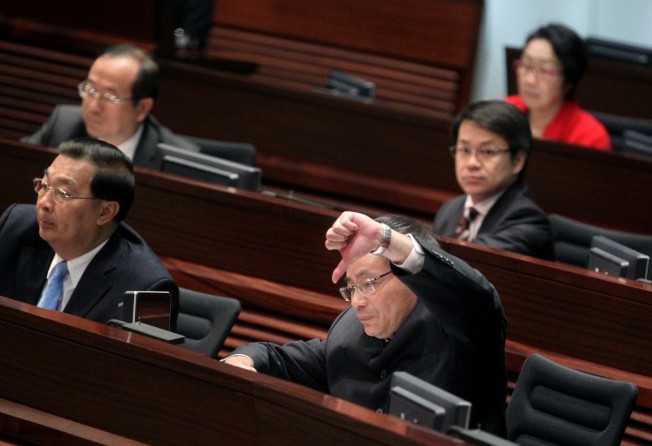Party politics can usher in effective governance
Sonny Lo says new law would facilitate the work of government in line with modern trends

Hong Kong has long put off formulating and enacting a political party law. But if political reform is to move forward, now is the best time to debate whether such a law is in the city's best interests.
Opponents turn a blind eye to the real benefits of such a law. First and foremost, political parties - which are currently registered under the Companies Ordinance - can be defined concretely. This would enable them to receive government subsidies when participating in legislative and district-level elections.
In Canada, for example, political parties are clearly defined by the electoral law as organisations which nominate candidates to participate in elections. Canadian law also states that to be defined as such, a political party must have a minimum of 250 members. In Hong Kong, the figure could be more relaxed given that some district-based parties are small and operate like "mosquitoes" when compared to large parties in Western democracies.
Second, parties' branch and district offices could receive much larger donations as well as official election subsidies. Subsidies could be tied to parties gaining a certain percentage of the vote.
Third, all political parties would be formally and legally recognised rather than the present situation where they operate as de facto parties without de jure status.
Most importantly, this could stimulate political appointees to get involved in party politics. In the event that most principal officials come from one party, the government would in effect be led by a political party with formal legal status.
This would be a win-win situation. Hong Kong would have the realistic possibility of being led by a political party acceptable to the central government, and the chief executive would be able to appoint a team of elite officials who enjoyed strong political support from the electorate and like-minded legislators.
In other words, a political party law would strengthen the chief executive's team and boost the executive-legislative relationship.
Finally, such a law would open the way for any chief executive candidate to participate in party politics in a legal and bold manner. Interestingly, in previous chief executive elections, only the pan-democrats have put forward a candidate; pro-establishment elites have shied away from the idea. However, if Hong Kong is to see meaningful reform, then arguably the chief executive should come from a party that can lead the administration in the long run.
If Hong Kong really wants to lay claim to being a vibrant, forward-looking city, then now is the time to consider a political party law that will develop and modernise the political scene.
Sonny Lo is professor and head of the department of social sciences at the Hong Kong Institute of Education